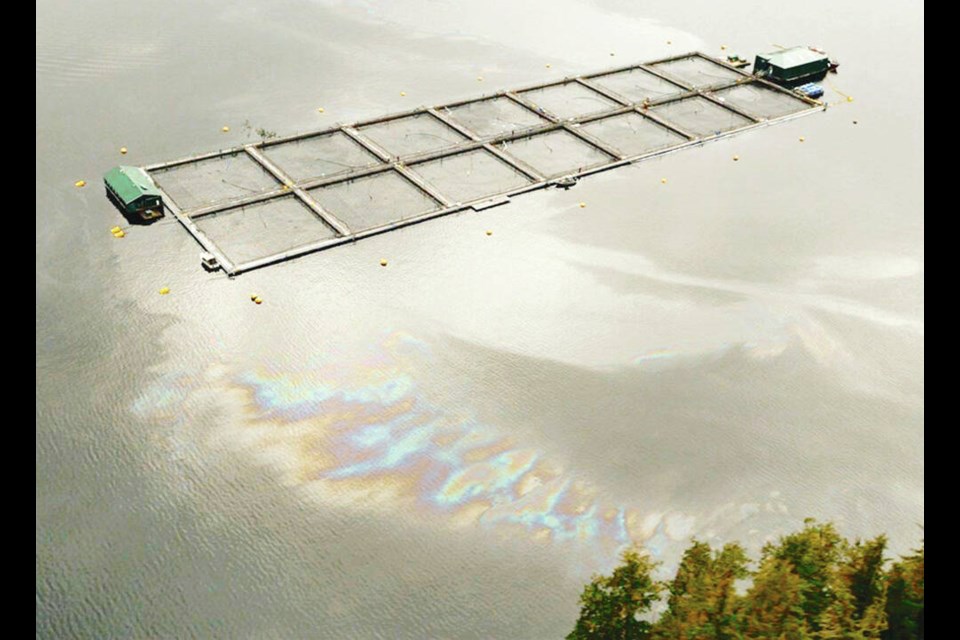A company that pleaded guilty to a major diesel spill at one of its north Island fish farms has been fined $500,000 by a provincial court judge.
Cermaq Canada released about 500 litres of diesel into Echo Bay about 70 kilometres east of Port Hardy in March 2017 when an employee was transferring the fuel from a large tank to a smaller one. The fuel spread over a one-kilometre radius, and the company was charged under the Fisheries Act for unlawfully depositing a deleterious substance into the ocean.
The Crown had asked that Cermaq, a subsidiary of global business giant Mitsubishi, be fined $1.4 million.
However, Judge Catherine Crockett said in her decision there was no significant proven damages to fish or other sea life and Cermaq had accepted responsibility and chosen to plead guilty. The company also spent nearly $900,000 on the cleanup and apologized on its corporate website.
“The consequences of this incident to Cermaq to date, including the monetary cost and damage to its reputation, go a long way to impress upon Cermaq the need to ensure its systems and training are sufficient to prevent similar offences in the future,” Crockett wrote in her decision.
“Nevertheless, I must impose a fine in keeping with Cermaq’s corporate size and relative financial means, so the fine could not be seen by Cermaq, or other companies that operate in the marine environment, as simply the cost of doing business. I agree with the Crown that general deterrence is particularly important in the context of the fish farming industry which operates directly upon the ocean.”
According to court documents, a Cermaq employee used a rope to tie the fuel nozzle to ensure continued flow while leaving the area to do other jobs — failing to follow posted instructions on fuel transfers.
The nozzle was left tied up overnight, with the smaller tank overflowing into the ocean.
There were no fish kills linked to the spill and all of the Atlantic salmon raised on the site were later processed and sold after testing by federal regulators.
The company also avoided feeding the fish, which would draw them to the surface, where the fuel was concentrated.
The operation where the spill occurred has since been decommissioned.
Crockett said Cermaq has updated policies and procedures at its operating fish farms and hired professionals to review fuel-handling facilities.
Read the court decision here.
dkloster@timescolonist.com



